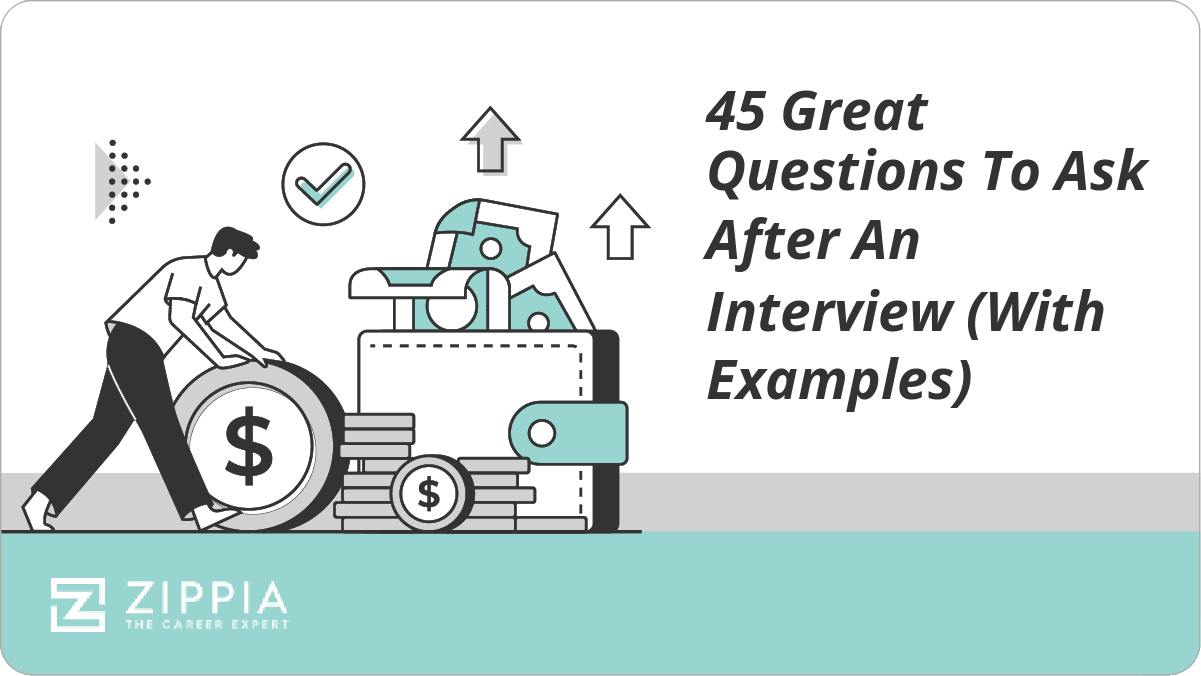- Interview Prep
- Star Method For Answering Questions
- Interview Preparation Checklist
- Star Interview Questions
- Words To Use In An Interview
- Mock Interview Preparation
- How To Make A Good Impression
- Bring Writing Samples
- How To Relax Before An Interview
- Interview Coaching
- Common Video Interview Mistakes
- Common Phone Interview Mistakes
- How To Ace Your Interview For A Remote Job
- Good Weaknesses For A Job Interview
- Good Strengths For A Job Interview
- How To Prepare For A Phone Interview
- Talk About Being Laid Off
- How To Decline An Interview
- How Early Should You Arrive For An Interview
- Types Of Interviews
- Communication
Find a Job You Really Want In
If you’re wondering if there’s anything more stressful than a job interview, the answer is yes: a panel interview. There’s a reason these types of interviews earned the grim nickname “interview by firing squad.”
In this article, we’ll go over what panel interviews are, why companies use them, and general tips for acing your next panel interview. Take a deep breath – you’ve got this.
What Is a Panel Interview?
A panel interview is a job interview conducted by two or more interviewers at the same time. The interviewers will likely include a hiring manager, your future supervisor, an HR manager, a potential peer, and other department heads with whom you’d be working closely. All areas of the company with a vested interest in finding the best candidate for the job vacancy will be represented at a panel interview.
Everyone in the room has a say in who the company ultimately hires, but the hiring manager typically leads panel interviews. They will ask some preset interview questions and lead the discussion. Other panelists likely have predetermined questions as well, in addition to posing follow-up questions when one of your responses touches on their role.
Panel interviews typically last between 45-90 minutes, so be ready for a test of your stamina.
Why Do Organizations Conduct Panel Interviews?
Organizations conduct panel interviews to save time, come to a consensus, see how candidates perform in group settings, and test candidates’ ability to handle high-pressure situations.
-
Saves time. The most practical reason for an organization to conduct panel interviews is how much time it saves. Hiring managers typically hold multiple panel interviews in one day, and the panel decides by the end.
The practicality of panel interviews is also nice for the candidate (although it may not feel like it). Instead of coming in multiple times and meeting one-on-one with various company members, you get all your interviewing finished in one session.
-
Consensus. When you have all the decision-makers together in a room, you reduce the risk of a bad hire. Each panelist will have a different perspective, and what satisfies one may spark follow-up questions in another. Panel interviews allow a representative from each relevant element of the company to have a say in what an ideal candidate looks like.
Additionally, panel interviews allow both parties to gauge whether you’d make a good fit into the company culture.
-
Tests candidates’ teamwork. In a panel interview, you have to engage with various personalities and levels of expertise. Interviewers want to see that you’re just as capable of addressing an HR rep’s questions as you are answering technical queries from your potential team lead.
By seeing how you interact with a group of potential colleagues, the panel members can assess how you’d fit into a team or collaborative effort.
-
Challenges candidates. It sounds kind of mean, but a significant reason organizations conduct panel interviewers is to apply maximum pressure to the candidates. After all, the job you’re applying for is bound to have stressful moments, and panelists want to see how you handle those moments.
It also exposes how quickly a candidate can think on their feet and adapt to new situations.
While any organization may choose to conduct panel interviews, the most common industries for this type of interview are:
-
Academic institution
-
Government agencies
-
Nonprofit organizations
-
Consulting companies
-
Senior-level position (in many industries)
9 Panel Interview Tips
Panel interviews aren’t entirely distinct from regular one-on-one job interviews. That’s good news because you can use general interview tips to help you succeed at your panel interview. However, before the interview, study these tips so you can come prepared.
-
Know your audience. As we’ve said, your panel will likely be made up of the following people: the hiring manager, an HR manager, team leads from relevant departments, and a potential peer. However, you should find out the specific people on the panel – just ask your company contact or recruiter beforehand.
Once you know who’s invited to the party, research them. Memorize names and job titles for each interviewer, see what their LinkedIn pages look like, and find out any major initiatives or accomplishments they have under their belt. With this information, you’ll be able to speak directly to their experience and satisfy their perspective on what an ideal candidate looks like.
The HR manager wants to make sure you’re a good fit in the company culture, the hiring manager wants to test your technical abilities, and a peer wants to see how you’d fit into their established team. Learn everyone’s name and role, and frequently use each panelist’s name to show you’re on the ball.
-
Engage with all panel members equally. A common mistake panel interviewees make is only addressing the most senior person in the room. Just because a hiring manager leads the discussion, it doesn’t mean you should focus your responses solely on her.
One of the best ways to show off your collaborative abilities is to involve every interviewer with every response you give. This can be as simple as ensuring that you give each panelist an equal amount of eye contact, even if it’s not their question you’re answering.
Do not forget to engage any silent panel members. It’s often the one who sits quietly taking notes that has the most clout in the final hiring decision, so be sure to bring them into the conversation when appropriate (this is where your prior research comes in handy).
An excellent way to involve everyone is first to answer a direct question and then anticipate what other department heads might want to know and address their perspectives. You can also ask questions throughout the interview instead of waiting until the end to keep engagement steady throughout.
-
Bring enough materials for everyone. It’s likely that all the panelists will already have your resume on hand, but it can’t hurt to bring enough copies to hand out. Bring a stack of business cards and any other documents you feel might be relevant during the interview.
It’s a straightforward way to make sure everyone in the room is up to speed on your background and credentials and will help avoid wasting time. It also showcases your abilities to prepare and think ahead.
-
Pay attention to your body language. The most significant element of your body language to keep in mind is eye contact. It’s easy to remember this tip in a traditional, one-on-one interview, but panel interviews can fluster even the most seasoned interview veteran.
As you answer an interviewer’s question, begin by maintaining eye contact with them. Then, start making eye contact with each panelist in turn, giving equal time to each. Don’t just swivel your head around like a bobblehead; shift your shoulders, and face each panelist squarely. In short, be attentive to nonverbal cues.
Make sure to smile, sit up straight, and try to control any nervous ticks, like tapping your feet or a pen. For those without good body language habits, a panel interview can be incredibly nerve-racking, so consider performing a mock panel interview beforehand to practice.
-
Be ready for follow-up questions. Even a regular job interview will likely include follow-up questions, but with a panel interview, you can expect follow-ups to take up a bigger chunk of time. Each panelist has their own perspective, and an answer you give to one may induce a follow-up question from another.
Panel interviews are typically fast-paced, so you’ll want to match that efficiency by having as many stories as possible to back up your qualifications. Use the STAR method to keep your anecdotes short and to the point.
Treat the panel interview as a conversation instead of a Q+A, and you’ll feel much more comfortable addressing each panelist’s perspective.
-
Take notes. Panel interviews will likely cover much more ground than your typical job interview, and it can be tough to keep it all straight in your head without a notepad. Be sure to ask your interviewers if it’s okay to take notes (they’ll say yes 99% of the time, but it’s polite to ask).
Don’t spend too much time writing, as you want to maintain eye contact as much as possible. However, you’re also here to learn more about the company and the role, so you’d be silly not to jot down this pertinent information.
Taking notes can also help you formulate questions as you go, whether you ask them during the interview or after. Also, try to take personal notes on each interviewer, so you have some content ready when you’re writing each a personalized thank-you note.
-
Ask questions. No interview is a one-way street, and panel interviews are no different. You’re there to find out if you want to work for this organization just as much as the interviewers are determining if they want you to work for them.
Find out about opportunities for advancement and professional growth, as well as the day-to-day responsibilities of the role. Demonstrate your genuine interest with in-depth questions that help the interviewers see your thoughts on the position.
Try to come up with one question per interviewer, so you have the chance to engage with each element of the hiring team, as well as some general questions.
-
Stay calm. Easier said than done, we know. But in the heat of a panel interview, you may feel pressure to rush through answers and come off as flustered. Balance active listening with speaking, or you might completely miss the point of an interviewer’s question in your rush to get out a response.
If you get stuck on a question, don’t lose your cool – just calmly state that you need time to consider the question and try to return to it later. A level approach like this will reflect better than a harried and confusing response.
Take your time to formulate answers, but keep your responses as brief and fluff-free as possible. And when those follow-up questions start flooding in faster than you can keep up with, try to prioritize which elements of the question need addressing. You might not be able to respond as fully as you like to each query but focus on communicating the most pertinent information.
-
Figure out follow-up. Don’t leave the room until you’re certain about when the organization will be in touch with the next steps. Otherwise, you might have to make some awkward inquiries later. You should also figure out who to contact with questions you think of after the interview.
Ensure that you get every panelist’s contact information so that you can write each a personalized thank-you note post-interview. Use your notes to mention at least one unique interaction with each, to show you were fully engaged with the entire panel.
Send thank-you emails as soon as possible because it’s likely the hiring committee will make a decision quickly.
Common Panel Interview Questions
Our final tip is to practice your answers to common interview questions. Just because there are more interviewers, it doesn’t mean that these standard questions won’t go up.
Here are a few common panel interview questions, with example answers to help form your own:
-
Tell us about yourself.
I’m currently working as a research assistant for a small lab studying photovoltaics and their applications for solar energy collection. The most exciting projects we work on involve perovskite solar cells, which have the potential to increase the efficiency of solar absorption by a remarkable amount.
I’ve been interested in chemistry since my first episode of Bill Nye as a kid, and I’ve enjoyed marrying my passion for the field with my inclination for activism and social change. I appreciate that XYZ Corp. makes climate change awareness and activism a cornerstone of its mission and doesn’t try to take a value-neutral stance on the subject. It’s one of the main reasons I was so excited to apply when I saw this job open up.
-
Why do you want to work here?
As someone who’s been working as a business analyst for nearly a decade, I know a solid institution when I see one. I’ve been following ABC Inc., and you’ve had a clear mission and near flawless execution since day one. It’s that sort of efficient and streamlined team that I want to be a part of.
Plus, this role is a dream for me. Both working with international clients while furthering monetization efforts domestically hits both my biggest areas of expertise and the parts of the job I love the most.
-
How do you handle stress?
My approach to stress is to be proactive. I try to anticipate issues with new projects by building time in my day for troubleshooting and assisting others, for example.
I also keep a running log of common problems that come up with me and my teammates and share it with everyone via Google docs. Having a master sheet of quick fixes like this is invaluable, and elements from that doc often end up transforming into new SOPs or tutorials for new hires.
When unavoidable stress does crop up, I have a few techniques, but the chief among them is mindfulness meditation. I find that rushing to resolve an issue rarely produces the best results, so I instead take 5-10 minutes to clear my head and breathe. I then approach the situation as if seeing it for the first time and identify the most urgent and important matters to handle. This resulted in me getting the nickname “Zen Jen,” and I try to live up to it every day.
-
Tell us about a time you made a mistake.
When I got my first internship in a lab, I was so excited and ready to go the extra mile. In that spirit, I decided to weigh out the pharmaceutical compound that we were testing for the next week while waiting for the results of my first test. However, I hadn’t yet received a full tutorial on the fine nuances of the scale, and so failed to tare it.
Unfortunately, this meant that most of the results from my first day of experimentation were completely unusable. Luckily, everyone was really understanding and explained that it’s the sort of mistake you only make once. Not only were they right about that, but I now know to wait until I’ve been fully trained on standard operating procedures before independently performing any task in a lab.
Panel Interview FAQ
-
Is a panel interview a good sign?
Yes, a panel interview is a good sign. In fact, it’s a great sign. A panel interview means your hiring company is interested enough to bring various staff members to the table to learn more about you.
These interviews are often held with executive team members to maximize their time out of the office. However, regardless of who you interview with, a panel interview is a good indicator that your candidacy is going well and you are likely being considered for the role.
-
How long is a panel interview?
A panel interview is typically anywhere from 45 to 90 minutes. Panel interviews are held in order to maximize both the interviewer’s and interviewee’s time. Holding a panel interview allows the interview to happen in a shorter time frame instead of blocking out an entire day for interviews.
-
What individuals are usually involved in a panel interview?
A panel interview typically involves the hiring manager, a human resources professional, and other members who work closely with the role. You may also have executive members sit in on your panel interview, but this usually depends on the company’s size.
Small companies tend to like to have leadership involved in every hiring decision, but for many larger organizations, this process is inefficient, and the individuals who work closest to this job candidate are sufficient enough to conduct the interview.
-
How do you introduce yourself in a panel interview?
In a panel interview, you should introduce yourself to each interviewer. It might be tempting to address the interviewers as a collective group, but it’s important that you take the time to introduce yourself to every single person in the room. It’s suggested to give a firm handshake, a smile, and introduce yourself by name.
-
Are panel interviews harder than regular job interviews?
Panel interviews can be considered harder than regular job interviews because they are more intimidating. Panel interviews are often more intimidating to the candidate as they are being interviewed by multiple people.
Although this may seem incredibly anxiety-inducing, panel interviews are often just as nerve-wracking as a one-to-one interview. The good news is, you will only need to be interviewed once, rather than separately by each person.
Final Thoughts
There you have it – everything you need to know to ace your panel interview. We know that they’re an exceptionally brutal type of interview, but with these tips in mind, you’re sure to come out the other side with a job offer.
- Interview Prep
- Star Method For Answering Questions
- Interview Preparation Checklist
- Star Interview Questions
- Words To Use In An Interview
- Mock Interview Preparation
- How To Make A Good Impression
- Bring Writing Samples
- How To Relax Before An Interview
- Interview Coaching
- Common Video Interview Mistakes
- Common Phone Interview Mistakes
- How To Ace Your Interview For A Remote Job
- Good Weaknesses For A Job Interview
- Good Strengths For A Job Interview
- How To Prepare For A Phone Interview
- Talk About Being Laid Off
- How To Decline An Interview
- How Early Should You Arrive For An Interview
- Types Of Interviews
- Communication





